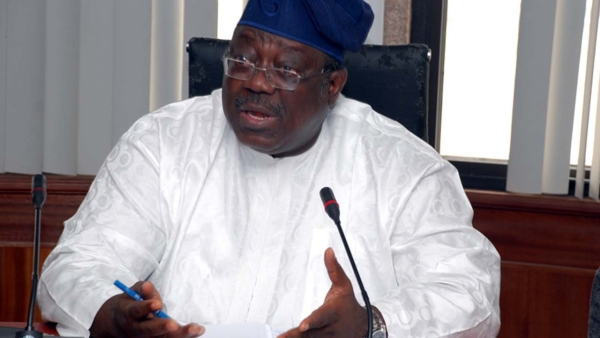The Chairman of the Federal Civil Service Commission ( FCSC), Prof. Tunji Olaopa, has described the coronation of the 46th Aláàfin Ọ̀yọ́, Ọba Abímbọlá Akeem Ọ̀wọ́adé, as a giant leap in Yoruba renaissance.
According to Prof. Olaopa, the coronation of a new Aláàfin of Ọ̀yọ́ is always an event that possesses social, political and cultural symbolism and significance. "This is why I deeply congratulate His Imperial Majesty, Ọba Abímbọlá Akeem Ọ̀wọ́adé, on the ascension of the throne of his fathers. This is an event whose significance transcends Yorùbáland and reverberates into the Yorùbá diaspora and the entire world where Yorùbá sociocultural and political influence is felt."
This is contained in a congratulatory message Olaopa issued to celebrate the new monarch whose coronation takes place on Saturday April 5, 2025 .
To Olaopa, the new Aláàfin is "wearing big shoes not just as the successor of the charismatic and highly influential leadership of past rulers, from Aláàfin Atìbà Atọ́batẹ́lẹ̀ to the unforgettable Aláàfin Lamidi Adéyẹmí—the traditional geniuses whose deep sense of history enabled them to curate the cultural relevance of the ancients and their traditional wisdom and institutions. He is also the inheritor of the great ancient tradition and heroic achievements of the leadership accomplishments from Ọ̀rànmíyàn to Ṣàngó, those whose foresights and selfless humanism laid the foundation of the formidable Ọ̀yọ́ Empire, and a cultural philosophy that gave the idea of the ọmọlúwàbì to the world."
For Olaopa, therefore, this ascension is therefore not a sinecure as he is confronted "with a modernizing imperative that serves as the core of the urgency of facilitating a Yorùbá renaissance at home and abroad. This renaissance must be founded on the rich tapestries of Yorùbá culture and civilization—that the Yorùbá built cities and founded dynasties; they created cultural dynamics and oversaw resilient political institutions; they conquered lands and incubate an entrepreneurial spirit that kept them on the critical frontiers of multidimensional achievements that have weathered the erosion of time. All this makes the Aláàfin a singular figure—a traditional agent of modernization that stands at the crossroads of managing the orthodoxy of tradition while launching the Yorùbá on the path of renewed modern vigor. This is even all the more so as traditional institutions in Nigeria places the traditional ruler within the context of democratic rejuvenation and consolidation. This is because it is at the level of the traditional institutional framework that Nigeria’s local governance dynamics become clarified and revitalized.
"The Aláàfin therefore becomes a symbolic pointer to the possibility of local governance that serves also as a modernizing influence on grassroots development. Yorùbá renaissance must therefore start at the level at which the Aláàfin constitutes the rallying point for southwest socioeconomic development. But this role as the vanguard of local governance means the Aláàfin has to first stimulate a climate of peaceful coexistence that constitutes the most significant element for socioeconomic development, starting from Afijio communities to the Òkè-Ògùn axis and rolling outward to the entire southwest as a corridor of development that builds on a climate of peace to instigate an industrializing progress that will eclipse past developmental efforts."
For the new monarch to realise these, according to Olaopa, he must be able to "stand above the recurring adversarial relationship that seems to define the relationship between the Aláàfin and the Ọọ̀ni of Ifẹ̀. This is one historical moment when the Aláàfin needs to be meticulous and deliberate in deploying his status, as the symbol of cultural unity, to articulate a relational framework that will ensure that all cultural and political resources are harnessed towards the task of making Yorùbáland a source of exemplary leadership that undermines the depth of irrelevance to which traditional rulers and traditional institutions have been reduced in Nigeria’s contemporary sociocultural and political reckoning.
" The ascension of the monarch will bring a cosmopolitan touch to modernize tradition for the emancipation of Oyo people.I see the coronation of His Imperial Majesty, Kábíyèsí Ọba Abímbọlá Akeem Ọ̀wọ́adé as the signal to a new beginning not just for the Ọ̀yọ́, Òkè-Ògùn and the southwest, but essentially for the injection of a youthful dose of creative and cultural innovation into Nigeria’s democratic experiment. May the reign of His Imperial Majesty, Aláyélúwà, Kábíyèsí Ọ̀wọ́adé be long and peaceful and fruitful—Àṣẹ!."


